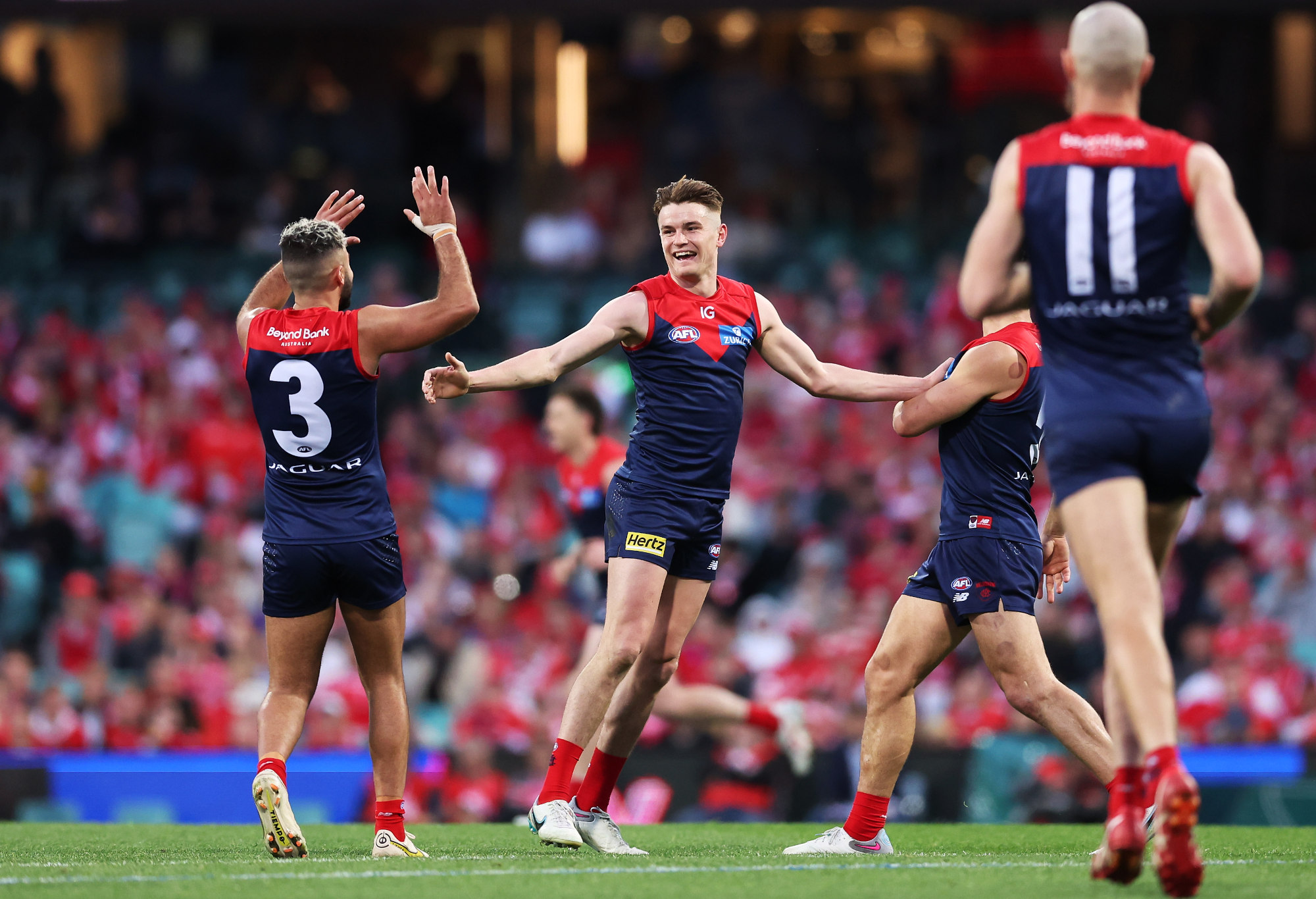'Worst top ten ever': Kane Cornes uses Eagles B&F results to savage them again
"Andrew Gaff - who probably shouldn't be playing AFL football, with all due respect... he finished seventh in their best and fairest."
Join The Roar
Become a member to join in Australia's biggest sporting debate, submit articles, receive updates straight to your inbox and keep up with your favourite teams and authors.
Oops! You must provide an email address to create a Roar account
When using Facebook to create or log in to an account, you need to grant The Roar permission to see your email address
By joining The Roar you agree to our Privacy Policy and Terms & Conditions
Login and get Roaring
Oops! You must provide an email address to create a Roar account
When using Facebook to create or log in to an account, you need to grant The Roar permission to see your email address
Years ago when the then-VFL was just 12 teams, the competition employed the McIntyre Final 5 system for the finals. The breakdown was simple:
WEEK 1
WEEK 2
WEEK 3
WEEK 4
Arguably, this was the best of all the finals systems that have been employed. Fourth and fifth were constantly in a state of sudden death. First, second, and third got double chances. The Minor Premier got a week off in the first week of finals, which meant they could refresh after a gruelling season, while second and third went right into it.

Jack Ginnivan. (Photo by Quinn Rooney/Getty Images)
Once the competition transformed into the AFL and began expanding, however, the finals system changed. In 1991, we went to the Final 6.
First played second, while third played sixth, and fourth played fifth Then there were a lot of qualifications depending on who won and who lost, i.e. the two lowest losers went out.
In 1992, Collingwood finished third (equal first, but for percentage), lost against sixth (St. Kilda) and were bundled out of the finals race, as they were one of the two lowest losers. The same thing happened to third-placed North Melbourne the following year.
Then, come 1994, the AFL employed the Final 8. This originally involved first playing eighth, second playing seventh, etc… Eventually, it was changed to the system in use today.
The argument since the Final 5 was abandoned has been how do you reward the Minor Premier? Because there should be some reward for finishing on top.
But in today’s Final 8, finishing first is no different to finishing second. And, as is the case next week, there’s no home ground advantage for Collingwood as Minor Premiers, because their first final is against an MCG co-tenant. Meanwhile, Brisbane get their own home final, so they’ve benefited while Collingwood hasn’t.
And just to preface this: this is not a rant to advocate for Collingwood, but a commentary on how the system functions, and the way it kicks up unfortunate disparities.

Bayley Fritsch. (Photo by Matt King/AFL Photos/via Getty Images )
The AFL has searched for answers on how to reward the team who finishes first, but given the structure of the finals system, have been unable to yield a genuine solution.
But I think it’s simple: the Minor Premier should be allowed to choose the time and place of their first final. Everybody else should be fixtured around that choice.
Most times, the venue would be a given – teams will want to play at their home base and, in the case of the MCG, there are a lot of co-tenants. But the time? That could involve anything from Thursday night to Sunday afternoon.
As it is, Collingwood and Melbourne are subjected to a Thursday night final – great for TV, but not so great for supporters coming from afar (like regional Victoria), or who have kids who can’t be out too late because they have school the next day. The same would’ve applied for anybody in this slot.
Granting the Minor Premier the power to choose their scheduling means they can attempt to shape their finals campaign in a way that no other club can – truly an advantage for finishing first.